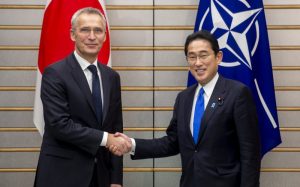Dear Writers, Readers, Supporters, and Followers
When we started “Quo Vademus”, it was always about creating a community of like-minded people and the idea that, despite us being perceived as “too young” and “inexperienced” we together can create change.
It was also about transparency, building something together, networking, starting a discussion, and creating a room for conversations. But most importantly it was about the personal connection.
Over the last weeks, many of you were asking about meeting the team and other members of the network and we were looking for the right tool. We think by creating a community-owned Discord server, we will be one step closer to achieving that.
On Discord, we have text-channels as well as voice channels. Public as well as private ones. Rooms where we can meet other people with shared interests and discuss topics, news, ideas, thoughts, as well as “Quo Vademus” itself.
Especially during this Pandemic, some of us are forced to spend more time at home. We therefore want to give you a place for valuable social interactions and a chance to network.
So just drop by on our Discord channel! (https://discord.gg/qrx6nVxtCh)
Stay safe and see you later!







Be First to Comment